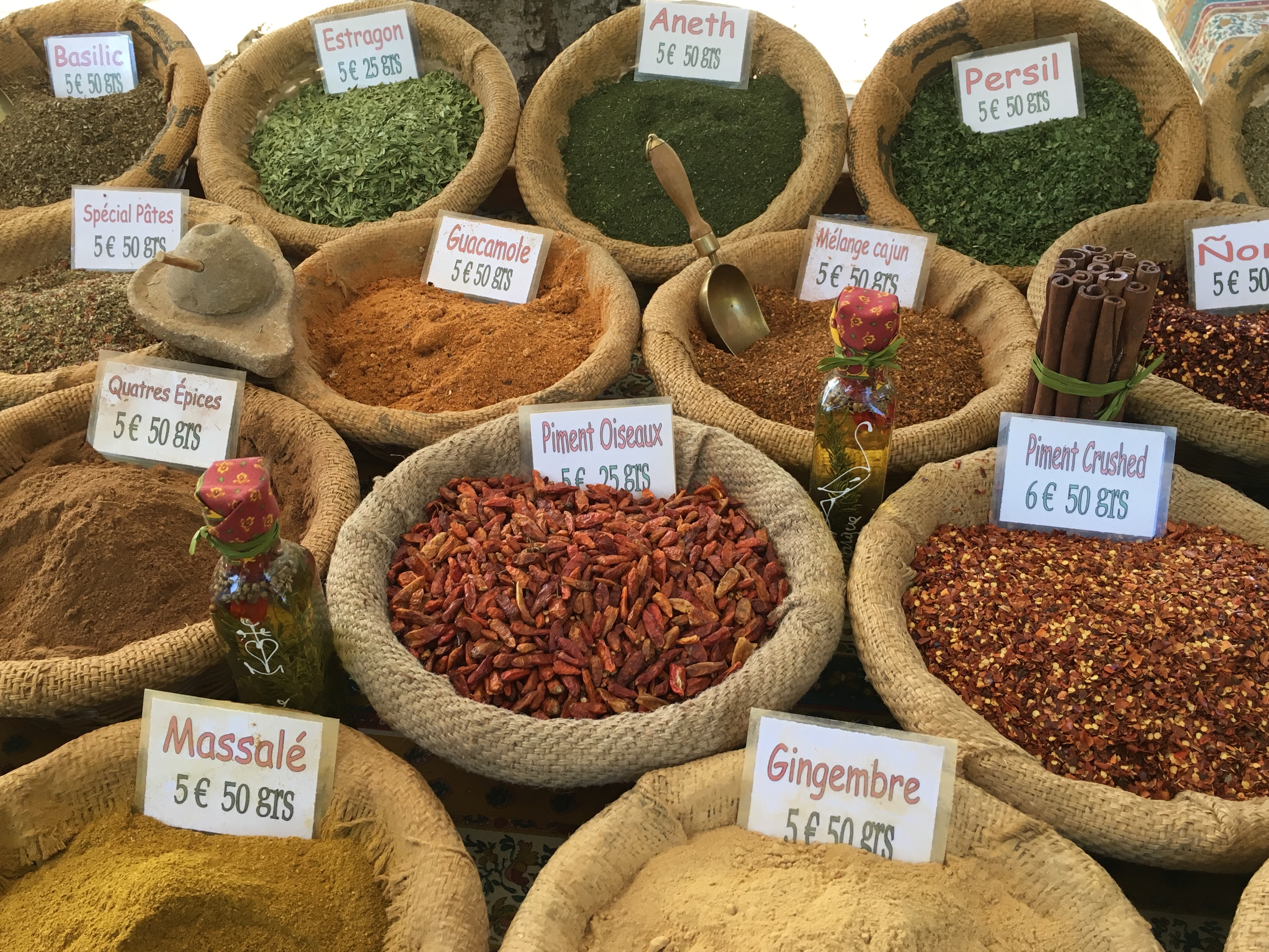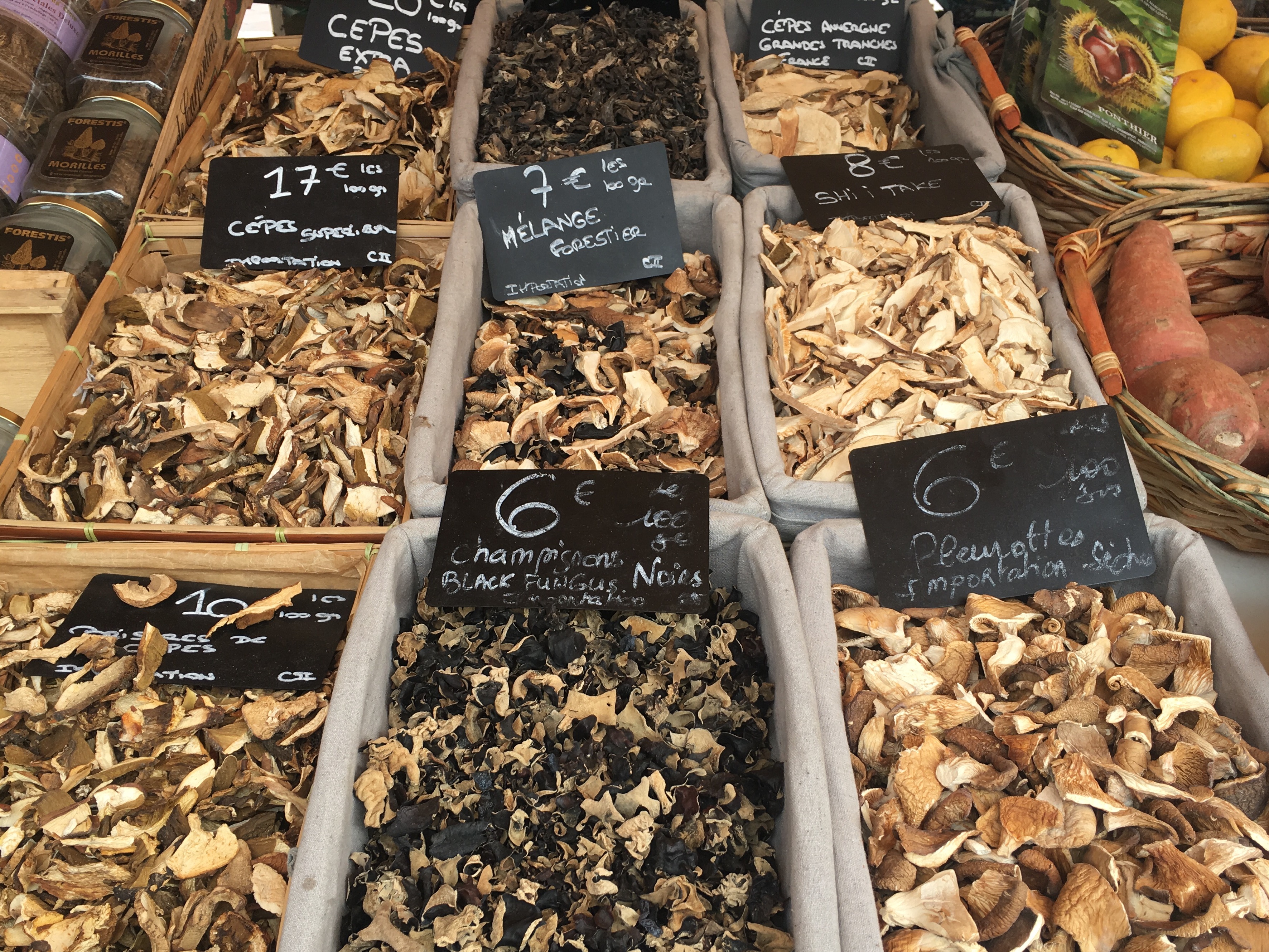Food and Travel—What we can Take Away
 Monday, June 12, 2017 at 4:00AM
Monday, June 12, 2017 at 4:00AM 
By Sandy Hu
The latest from Inside Special Fork
For a food lover, whether you’re doing a road trip to another part of your state or flying to another continent, tasting regional specialties and visiting local markets are highlights of travel.
Steve and I just returned from three weeks in the South of France and Turin, Italy. And in addition to some exceptional dining experiences on the road, including at two restaurants ranked in the top 50 of the World’s Best—we manage to extend the pleasure of our trip by bringing great food home.
When my kids were little and we went to France and the Netherlands for their first European vacation, I brought back a few little jars of jam and hot cocoa packets from our hotel’s continental breakfast and supplemented this stash with local-baked croissants and a baguette, so we could play at being in France. I also bought some “Delft” egg cups to serve soft-boiled eggs, along with cold meats and cheeses, to pretend we were still travelers in Holland.
Today, we don’t do “pretend,” but we still bring back foodstuffs from the outdoor markets, supermarkets and specialty shops to savor with our adult children and grandchildren we get home.
Here are some tips for packing those goodies for transit.
- If you are an American traveling abroad, know what you can take back to the U.S. by checking out this guide from U.S. Customs and Border Protection regarding permissible food. When you return, you’ll be asked to declare whether or not you are carrying food. Don’t lie, which could lead to a considerable fine if you are caught. Just let the official know what you are carrying and if they fit the permissible guidelines (which you’ve checked before making your purchases), it’s smooth sailing through customs.
- As you plan your trip, research local food markets in the places you plan to be, and when they occur, so you can time your trip to be there on market day. Some markets are held daily, but in France, many small towns have a set market day, once a week.
- As you travel, save all the plastic shopping bags you get from every shopping expedition. You may need them for packing at the end of your trip. Toss them only after you are final-packed for home.
- Look for regional specialties. We bought lemon marmalade from Menton, a famous citrus-growing region in France, and fleur de sel from the Camargue, where salt has been extracted since prehistoric times.
- Buy what looks better or cheaper than what you can find at home. We bought some herbs and spices from the Marché Provençal in Antibes, dried cépes (mushrooms) from the Cours Saleya market in Nice, beautiful sun-dried tomatoes at the Tuesday market in Vaison la Romaine.
- Confections make welcome gifts and are usually easy to transport. We stocked up on gianduja, the heavenly chocolate and hazelnut specialty of Turin. Throughout Provence, we picked up calissons (almond candy), nougat and candied fruit. Think about space and unless presentation is critical for a gift, forgo elaborate boxes and tins for cellophane bags, which can be tucked more easily into a suitcase or carry bag.
- Cans travel well. Paté, rillettes and canned fish specialties always come home with us from France.
- Through the years, I’ve become an expert packer—filling every nook and cranny of a suitcase tightly, so nothing shifts, which is the secret to bringing home your foodstuffs in one piece.
- If we are packing jars, such as jams, honey, etc., I wrap each one in a plastic bag. Put the jar at the bottom of the bag, twist a few times to close, then turn the top of the bag over the jar so it is doubly encased in the bag, then close with a rubber band or twist tie. Set the plastic-wrapped jars between layers of clothes (not your best clothes in case anything cracks and leaks) and with a buffer of clothes between each jar and the next. Make sure the bag is packed tight to keep the jars in place. In all the years I’ve brought food home, I have never had a jar crack on me. However, to be safe, I don’t recommend packing jars with liquids—such as olives or olive oils, which could spell disaster with any breakage.
- Hand-carry the lighter things and make sure smells don’t transfer by wrapping dried mushrooms, herbs and spices, and other foods with strong odors in several layers of plastic bags.

Now that we’re home, I’ve unpacked my food treasures and soon, we’ll begin to re-live our trip through the flavors we’ve captured in our suitcase from across the world.
Special Fork is a recipe website for your smartphone and PC that solves the daily dinnertime dilemma: what to cook now! Check out our recipe database for quick ideas that take no more than 30 minutes of prep time. Follow us on Facebook , Twitter, Pinterest, and YouTube.
Reader Comments